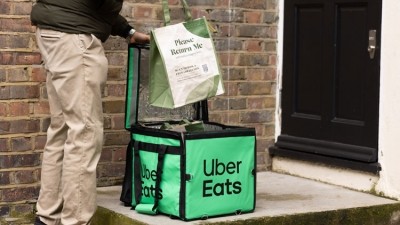UKHospitality unveils sustainability strategy

The strategy, announced at a seminar in London yesterday (12 October), comprises 10 pledges in four key areas: waste, supply chain, skills, and biodiversity. The 10 pledges include to deliver on 2040 net zero aims for the sector; eliminate unnecessary single-use packaging by 2025; and reduce food waste by 50% by 2030.
Furthermore, the pledges also include incorporating sustainability skills in relevant training courses and promoting the appointment of site-based sustainability champions; rolling out the UKHospitality sustainability guide to members, focusing on providing tips, templates, and best practice resources to SMEs; and supporting the Hospitality Sector Council’s Sustainability Committee on delivering the environmental targets.
Additionally, the strategy also pledges to promote sign-up to external pledges such as the Courtauld Commitment and Plastics Pact; facilitating engagement across supply chains to reduce environmental impacts; promoting the roll out of EV charging points; and working with the Hospitality Sector Council to align industry objectives and share best practice among businesses.
Nicholls, who spoke at the seminar, said the strategy will place the industry at the forefront of decarbonising efforts and is a 'clear statement of intent' from UKHospitality.
Also speaking at the seminar, Burger King UK (BKUK) CFO Tim Doubleday revealed an accompanying Environmental Sustainability Guide for SMEs. The guide includes practical actions such as making all plastic packaging reusable, recyclable, or compostable; ensuring employees complete a 15-minute course on food waste from the Waste and Resources Action Programme (WRAP); reviewing menus to incorporate more locally produced goods and plant dishes; and engaging with suppliers to source low carbon food alternatives for menus.
Speaking at the seminar, Doubleday said: “Businesses have to be resilient in terms of sustainability but also future prospects. You can’t have that unless you take energy policies seriously in today’s world.
“Corporate sustainability activities accelerated during the 2008 recession as businesses learnt the value of responsible business.”
Doubleday added that government initiatives such as deposit return schemes will continue to be introduced, making it crucial for businesses to respond to emerging trends. As a sector, 90% of carbon emissions come from the supply chain, further underlining the importance of working with suppliers.
The Burger King for Good sustainability strategy is centred around five key pillars: good for people, animals, communities, guests, and the planet. The operator works closely with the Zero Carbon Forum to reduce emissions and energy use and increase recycling and reusable packaging.
It is also trialling a deposit scheme whereby customers can pay £1 and bring packaging back to stores to receive their deposit.
“It’s important for both big and small businesses to take steps so we can move forward as a sector,” Doubleday said.
Commenting on the launch, Nicholls said: “Hospitality has been swift to embrace and accelerate sustainable practices in recent years but we’re entering a crucial phase in dealing with climate change, which makes our new Sustainability Commitment vitally important if we’re to deliver on 2040 net-zero aims for the sector.
“Ours is an overwhelmingly SME-led industry, so it’s crucial that SMEs are equipped with specialised tools to deliver the environmental targets set out by government, and to build businesses whose everyday operations are environmentally friendly.”





















